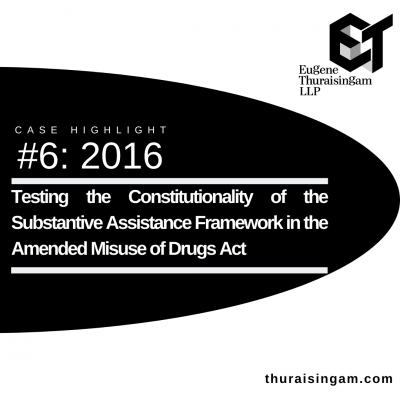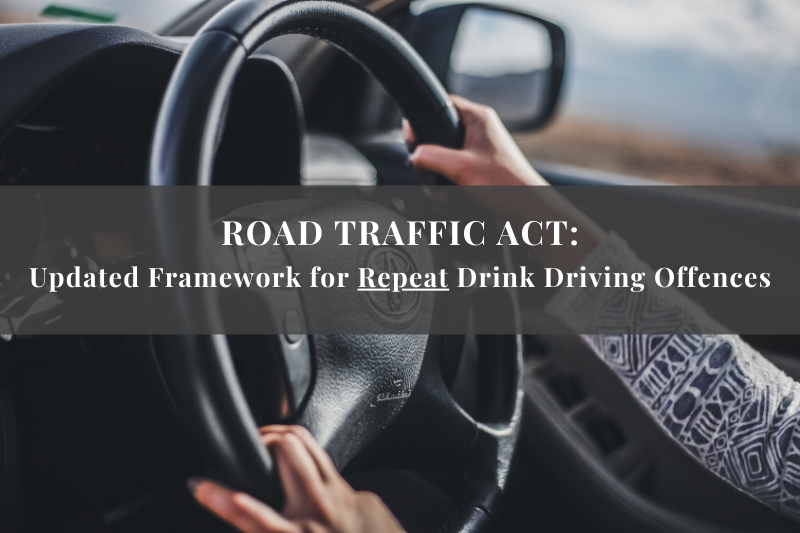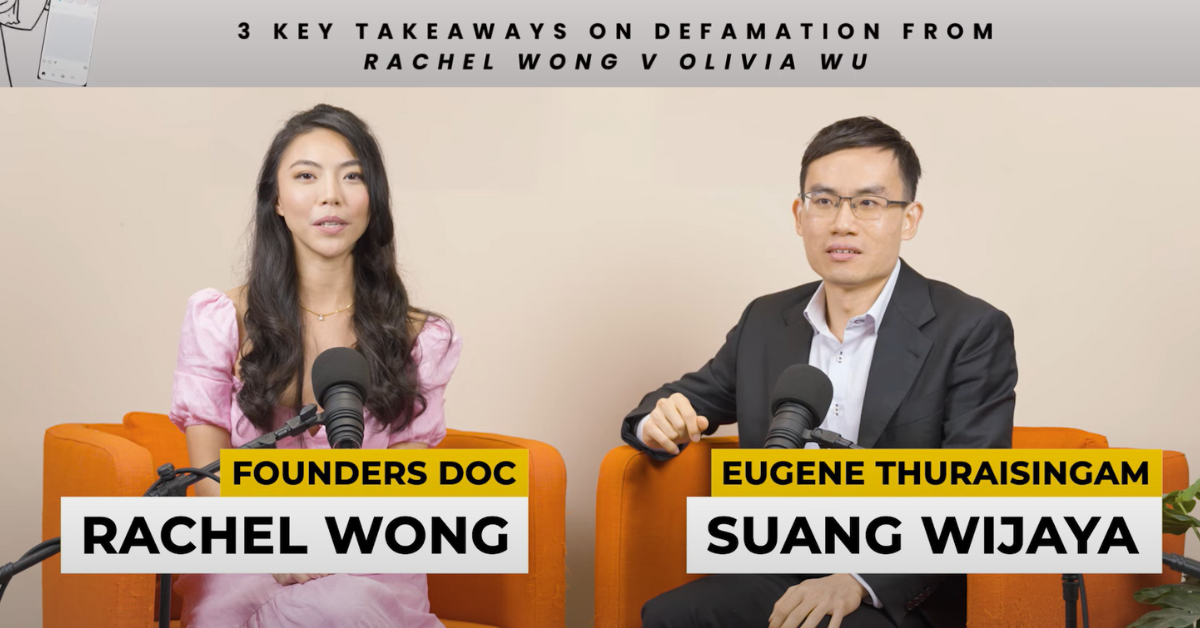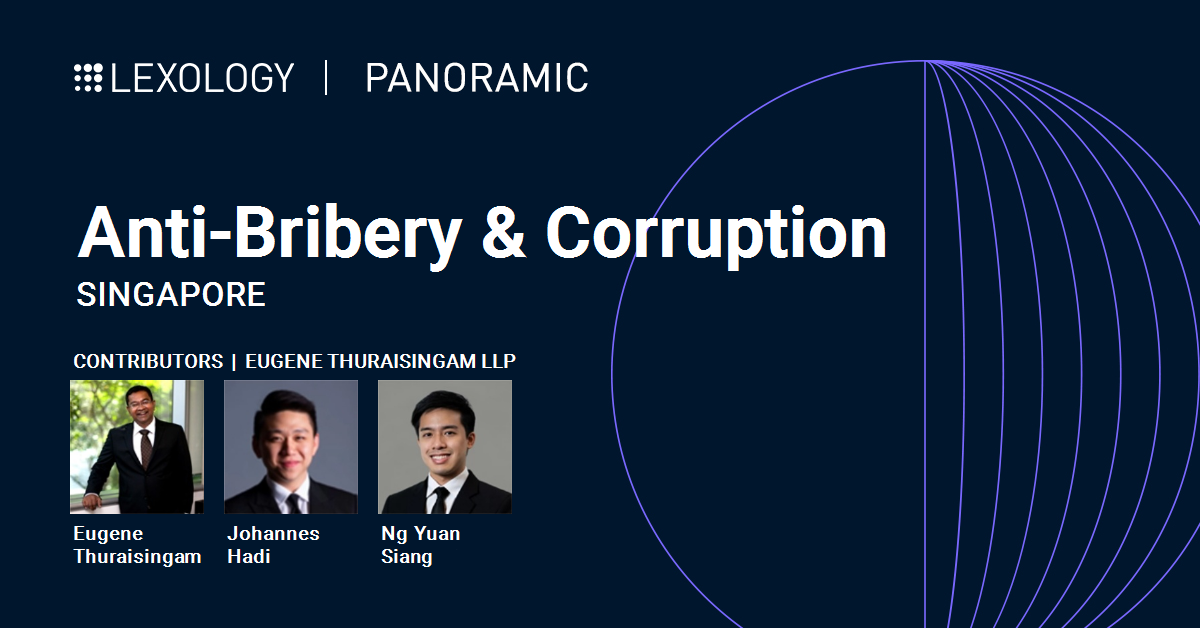Testing the Constitutionality of the Substantive Assistance Framework in the Amended Misuse of Drugs Act
Prabagaran a/l Srivijayan v Public Prosecutor and other matters [2017] 1 SLR 173
Section 33B(2)(b) of the Misuse of Drugs Act (the “Substantive Assistance Framework”) applies to a person convicted of a drug offence punishable with death, and who had not been suffering from an abnormality of mind at the time of the offence (an “offender”). Such an offender is eligible for life imprisonment only if he is certified to have substantively assisted the Central Narcotics Bureau (“CNB”). If the offender is not so certified, the offender must be sentenced to death.
Significantly, it is the Public Prosecutor, not a Judge, who decides whether or not an offender has substantively assisted the CNB.
In 2016, our team, including Suang Wijaya, acted for four offenders in bringing proceedings in the Court of Appeal, challenging the constitutionality of the Substantive Assistance Framework. We argued that the Substantive Assistance Framework impermissibly vests the Public Prosecutor with a judicial power. Our submission was that the Substantive Assistance Framework gives the Public Prosecutor the power, for each specific case, to decide the sentence to be imposed on the offender. In many cases, the Public Prosecutor literally determines whether the offender should live or die.
In its judgment reported as Prabagaran a/l Srivijayan v Public Prosecutor and other matters [2017] 1 SLR 173, the Court of Appeal disagreed with our analysis. In the Court’s view, the Substantive Assistance Framework does not give the Public Prosecutor the power to decide whether an offender should suffer the death sentence or not. All that the Substantive Assistance Framework does is to (a) prescribe a condition (ie, a certification of substantive assistance) for an offender to become eligible to life imprisonment, and (b) empower the Public Prosecutor to decide whether that condition had been satisfied.
With respect, the Court’s analysis raises more questions. The Court did accept our proposition that, if a statutory framework gives an executive office a power to indirectly influence an offender’s sentence, that framework would be unconstitutional. How then can the Substantive Assistance Framework not be understood as giving the Public Prosecutor to indirectly (and, in many cases, directly) influence an offender’s sentence? And, how is the analysis changed by the characterisation of the Substantive Assistance Framework as merely prescribing a condition, since it is the Public Prosecutor who decides that this condition had been met?






